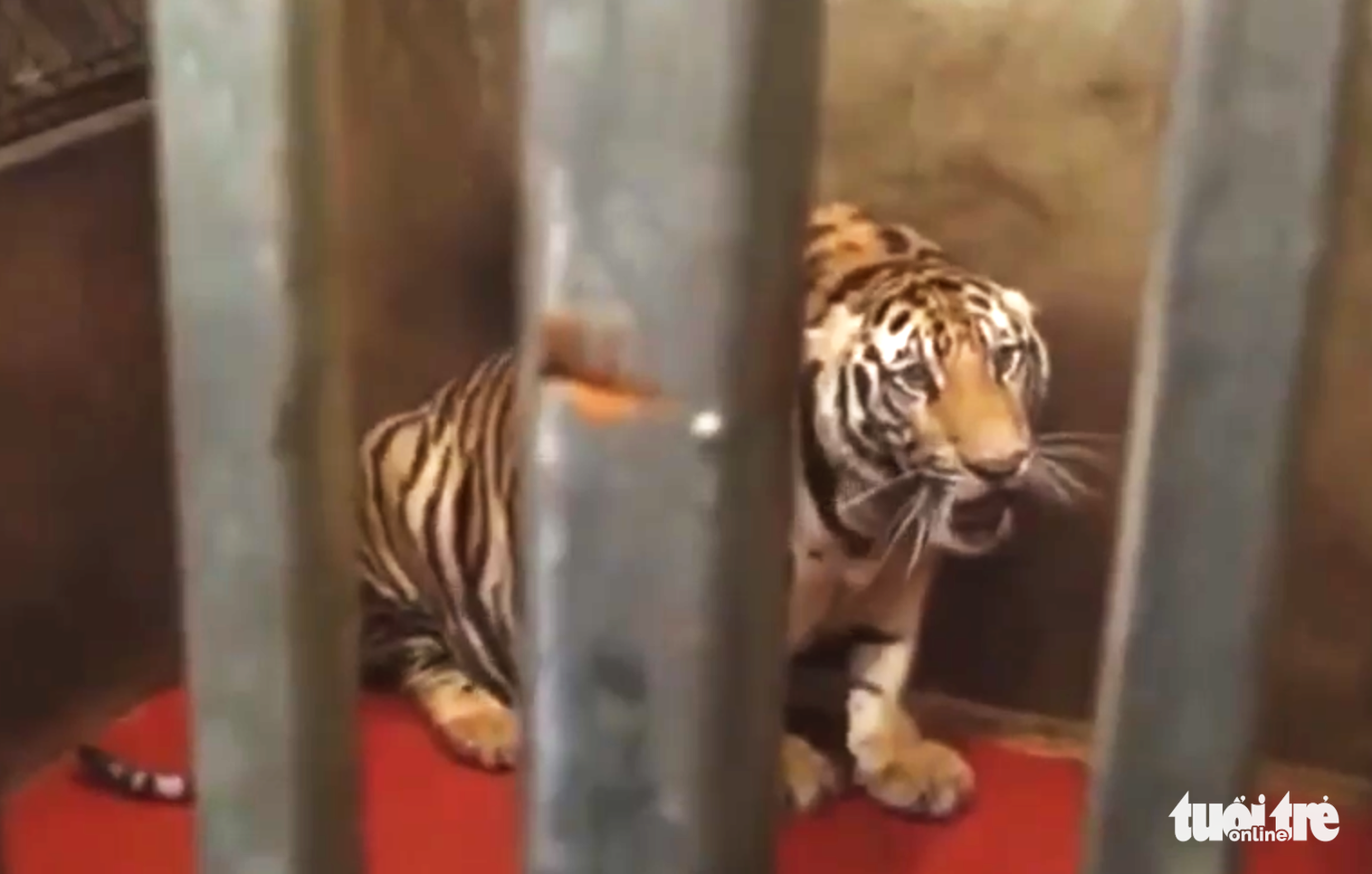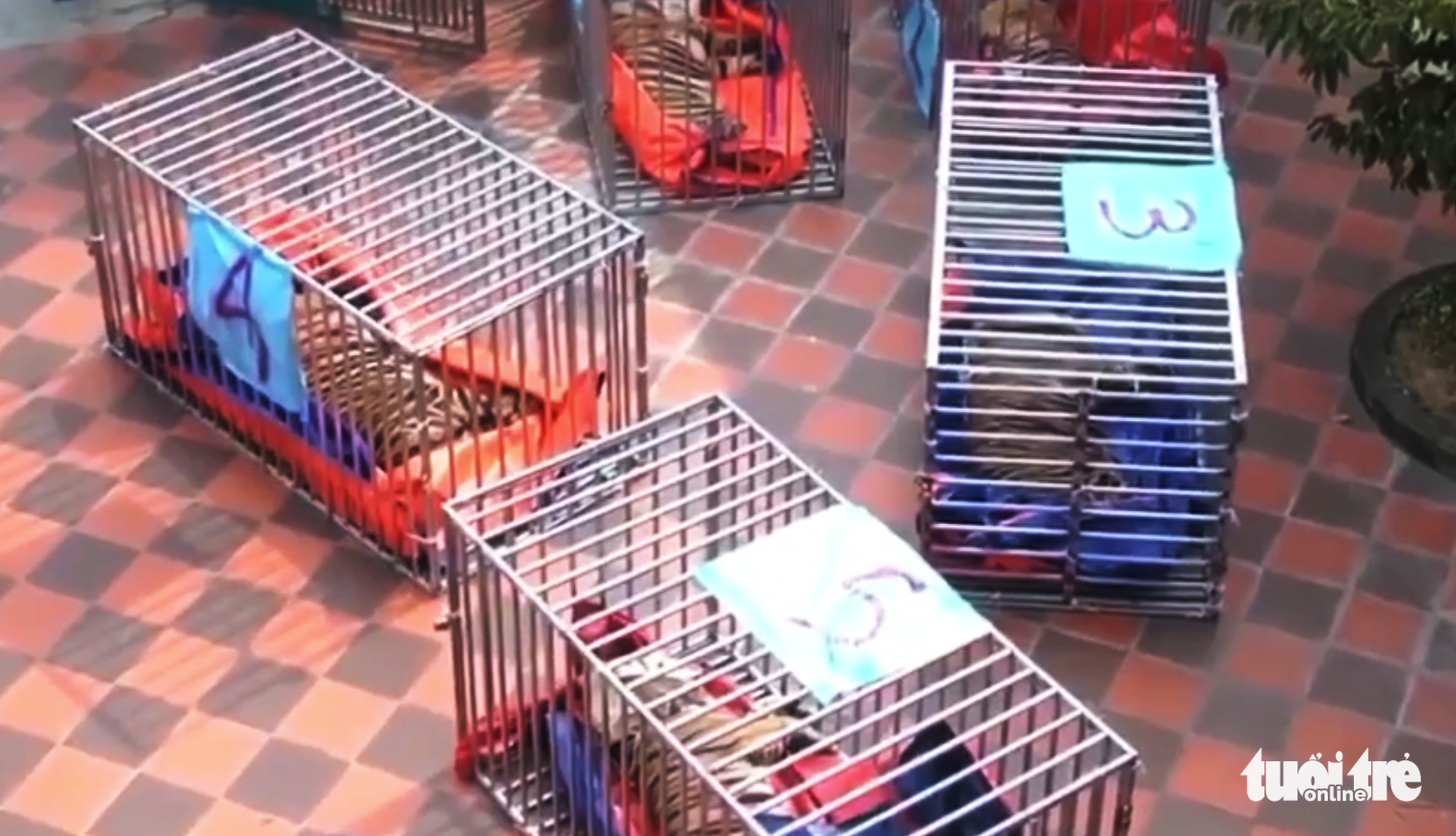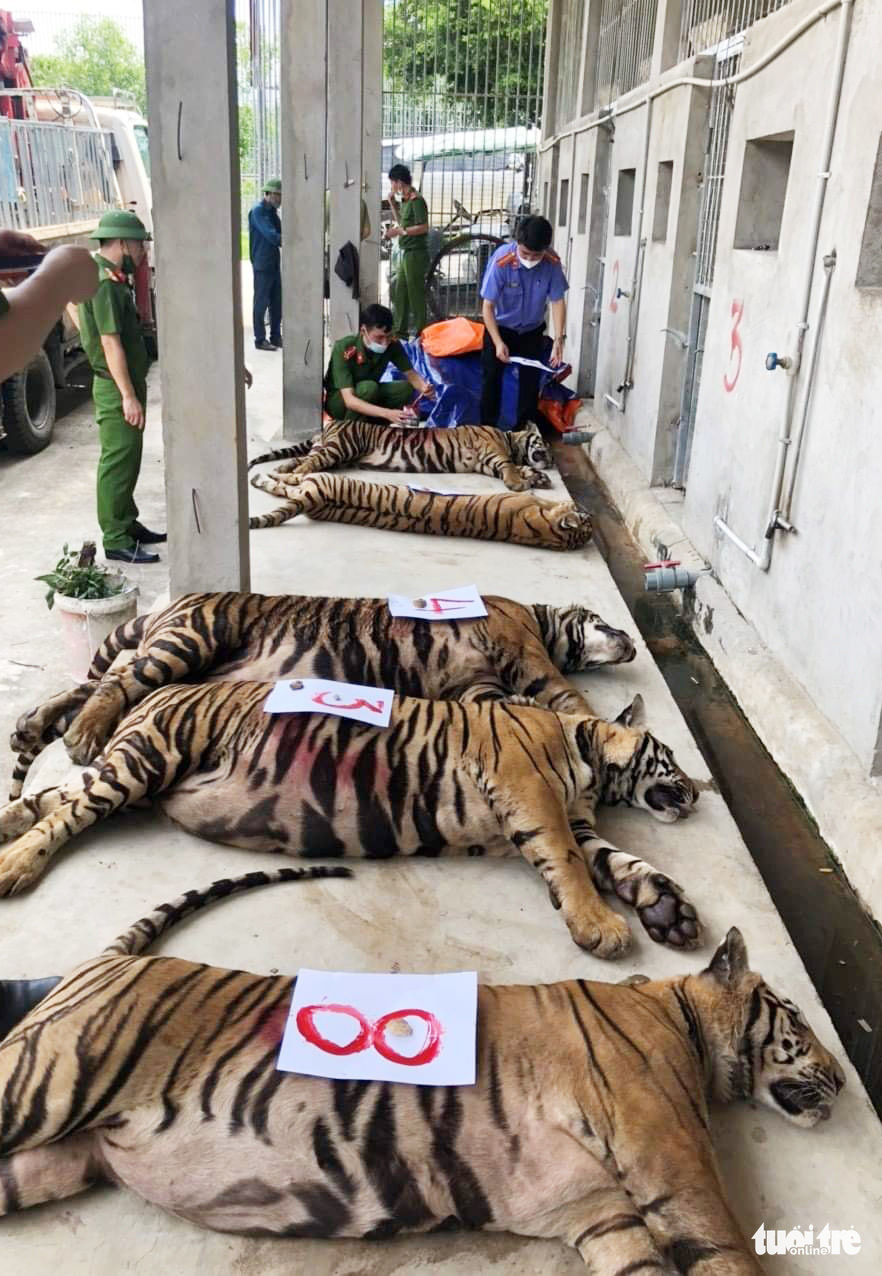Two families in north-central Vietnam have been caught transforming their houses into tiger farms and trying to protect their facilities from being detected by competent authorities for a long time.
The Department of Public Security in Nghe An Province on Wednesday evening announced preliminary information regarding a case where 17 adult tigers were found at some residential houses.
Officers inspected the residence of Nguyen Van Hien, 39, in Do Thanh Commune, Yen Thanh District on Wednesday morning and discovered 14 tigers, each weighing nearly 200 kilograms.
Hien stated he had bought the wild animals from Laos when they were cubs.
The man then turned an 80-square-meter section of his house into a tiger farm.
Another team of officers raided the house of 50-year-old Nguyen Thi Dinh, also in Do Thanh Commune, on the same day.
Dinh was caught keeping three fully grown tigers, each weighing 225 to 265 kilograms.
|
|
| The tigers are anesthetized and put in iron cages before being transferred to an ecological site for temporary care in Nghe An Province, Vietnam. Photo: Bac Xuan / Tuoi Tre |
The woman said she had built a 120-square-meter basement to raise the animals and avoided being detected by authorities or neighbors.
Officers stated that the tigers at the two locations were kept inside small cages, each measuring about four square meters.
The farms were surrounded by iron fences.
At the time of the inspection, the 17 tigers were all healthy.
They were put into iron cages and brought to an ecological site for temporary care, assessment, and investigation.
In 2012, multiple households in Do Thanh Commune were discovered operating illegal tiger farms.
However, Hien and Dinh were not associated with any of these cases, said an official from the commune’s administration.
|
|
| Anesthetized tigers are checked by authorities in Nghe An Province, Vietnam. Photo: Bac Xuan / Tuoi Tre |
In January, police in neighboring Ha Tinh Province discovered a dead tiger, about 250 kilograms, at the house of a 49-year-old man.
He claimed to have bought the animal from Nghe An to make tiger bone paste.
In March 2017, five tigers, which had been killed and had their organs removed, were found inside the freezer at a house in Nghe An.
Tigers and many other wild animals are strictly banned from being traded in, imported to or exported from Vietnam as they are on the list of endangered wildlife protected by the Convention on International Trade in Endangered Species of Wild Fauna and Flora (CITES), to which the country has been party since 1994.
As some people believe that tiger-derived products can cure bone and joint illnesses, tigers are in demand in Vietnam for their meat, bones, and skin.
Like us on Facebook or follow us on Twitter to get the latest news about Vietnam!






















































